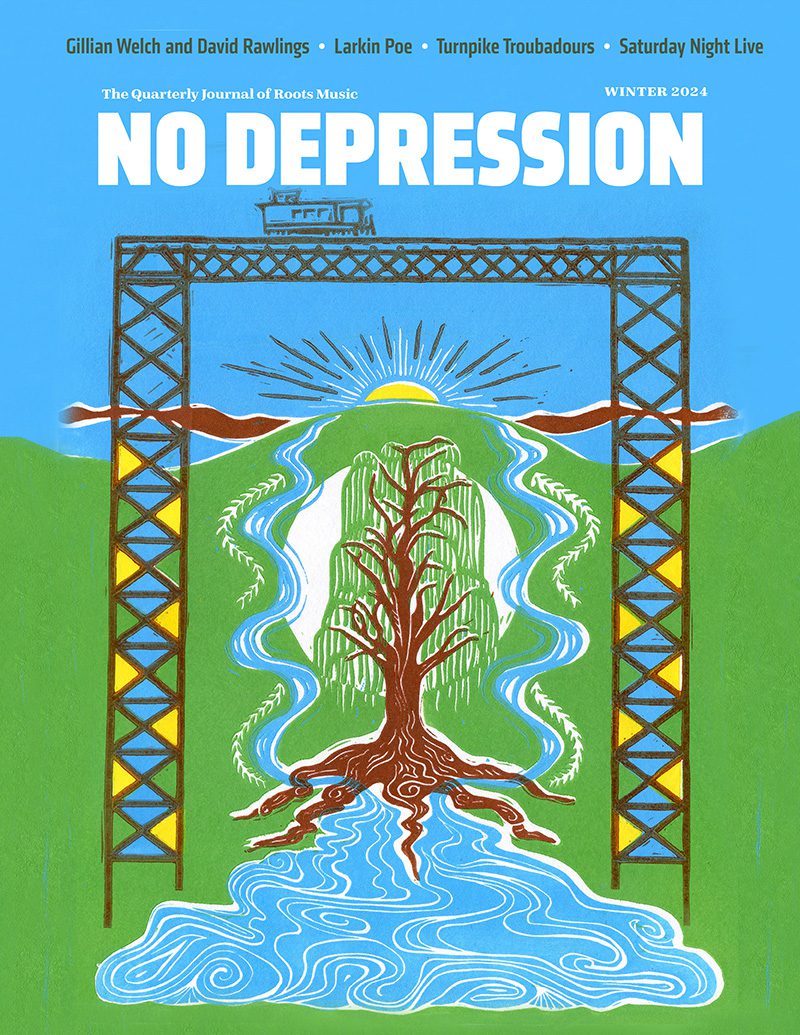When the late, legendary British DJ John Peel witnessed his first Bruce Springsteen concert in 1975, this was his assessment: “A trifle theatrical, like off-cuts from West Side Story. He is not…the future of rock ‘n’ roll, but rather a summary of its past.” Peel’s 32-year-old perspective nails the central irony of Springsteen’s career. In 2007, the future is now, and Springsteen seems more than ever locked in lyrical and musical retrospection.
Nostalgia’s not necessarily a bad thing, and on the most superficial levels, Magic may be the closest approximation to an old-school, big-noise Bruce album in ages. But for all the arena-ready muscle fortifying these songs and the skilled performance of the E Street Band (bassist Garry Tallent gets my vote for MVP), Brendan O’Brien’s production at times overwhelms the proceedings, leaving me thinking “Livin’ In The Future” or “Your Own Worst Enemy” would lose nothing and gain much from a stripped-down approach. There are better songs lurking amid this wall of noise; check out the elegant hidden track, “Terry’s Song” (a tribute to the singer’s recently deceased crew member Terry Magovern).
Whether pining for old-time rock airwaves (“Radio Nowhere”) or marking waning romantic powers (“Girls In Their Summer Clothes”), the message of Magic is simple: Things ain’t what they used to be. Not exactly a revelation, but there is a nagging unease throughout which is never explicitly named. That Springsteen is disinclined to identify the source of his brooding seems, at best, like a lost opportunity — not for ideological purposes, but to take his art in a bolder direction.
For some unstated reason, “Livin’ In The Future” is set on “Election Day/Sky’s gunpowder and shades of gray.” On “Gypsy Biker”, Springsteen mourns a war vet by commenting that “speculators made their money on the blood you shed.” Care to name those speculators or declare what troubled you about the election, Bruce? Or did you have trouble finding rhymes for Halliburton and “swift boat veterans”?
The connection is more explicit on “Last To Die”, which cribs a chorus from John Kerry’s 1971 Fulbright Hearing testimony and concludes: “Will tyrants and kings fall to the same fate/Strung up at your city gates?” In Kerry’s original speech, the war hero and future presidential candidate went on to say this: “Where is the leadership? We are here to ask where are McNamara, Rostow, Bundy, Gilpatric and so many others. Where are they now that we, the men whom they sent off to war, have returned?”
If the bittersweetness behind these songs ever curdles into righteous anger, a similar naming of names just might lift Springsteen out of Magic’s wistful longing for bygone days, and into the future.




